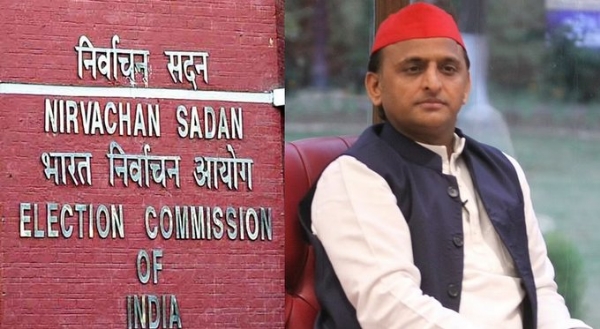Where is the proof?: EC to Akhilesh Yadav on missing Yadav, Muslim voters allegation
28 Oct 2022 14:51:53
New Delhi, Oct 28: The Election Commission on Thursday wrote to Samajwadi Party president Akhilesh Yadav, asking him to give proof of his allegation that around 20,000 electors from the Yadav and Muslim communities were struck off the electoral rolls in each of Uttar Pradesh’s 403 constituencies, EC sources said.

The EC took cognizance of media reports on September 29 about Akhilesh’s allegation and asked him to submit documentary proof to substantiate it. Akhilesh alleged that the electors’ names were deleted from the rolls at the behest of the BJP.
An EC source said there was no provision in law for an electoral roll based on caste or religion. “Since Akhilesh’s statement regarding the alleged mass deletion of names, that too of a particular group of voters from the electoral roll, is extremely serious and has far-reaching substantive and perceptional implications on the integrity of elections and thereby on democracy, the ECI has asked him to submit documentary proof based on which he has made such a public statement about mass deletions,” the EC source said. The EC has asked Akhilesh to submit his response by November 10 “so that necessary action can be taken”, the source said. The former Uttar Pradesh chief minister was asked to submit details of the Assembly-wise data of deletions, along with supporting documents. The EC source noted that the commission had not received any such complaint nor had any such issue cropped up during the Uttar Pradesh Assembly elections earlier this year. There had been no allegation of deletion of names during the special summary revision of the electoral roll from November 1, 2021, till January 5, 2022, nor during the constant revision of the rolls since then, the source said.
“Only one complaint regarding deletion of a list of around 10,000 electors (from minority and Scheduled Caste) was made to a DEO (District Election Officer) by a candidate of the Samajwadi Party from Aliganj Assembly Constituency. On inquiry by the CEO (Chief Election Officer), Uttar Pradesh, the allegations were found to be baseless, unsubstantiated, and factually incorrect,” the source said. According to Section 31 of the Representation of the People Act, 1950, anyone who makes “false declarations” faces one year in prison, a fine, or both, and under Section 125 of the Representation of the People Act, 1951, “promoting enmity between classes in connection with election” is punishable by up to three years in prison, a fine or both.